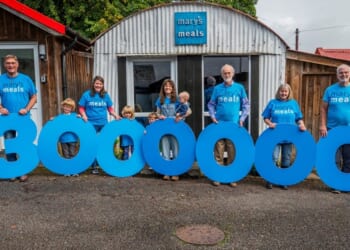A 46-year-old woman from County Tyrone, Northern Ireland has been sentenced to 160 hours of community service after illegally obtaining nearly £20,000 in welfare payments while residing overseas.
Fiona McIvor, who lives in Cleneyarde, Coagh, appeared before Dungannon Magistrates Court yesterday where she was convicted of benefit fraud totalling £19,565.

Getty
|
A 46-year-old woman from County Tyrone, Northern Ireland has been sentenced to 160 hours of community service after illegally obtaining nearly £20,000 in welfare payments while residing overseas
In addition to the community service order, the magistrate ruled that McIvor must reimburse all funds that were wrongfully claimed from the public purse.
The fraudulent activity came to light through an investigation conducted by the Department for Communities, which discovered McIvor had been claiming welfare payments she wasn’t eligible for.
Officials found she had been receiving both Income Support and Housing Benefit while failing to inform authorities of her residence abroad.
The Department has stated that McIvor will be obligated to return all monies obtained through deception.
LATEST DEVELOPMENTS:
Authorities have reminded the public that suspected benefit fraud can be reported to the Department for Communities through anonymous channels.
The conviction follows the Department’s recent reinstatement of its policy to publicly identify individuals found guilty of making fraudulent benefit claims.
The case emerges against a backdrop of widespread benefit fraud across Northern Ireland, which drains more than £160 million from public funds each year.
This substantial financial burden has prompted Communities Minister Gordon Lyons to implement stringent new measures to combat fraudulent claims.

Getty
|
Fiona McIvor, who lives in Cleneyarde, Coagh, appeared before Dungannon Magistrates Court yesterday where she was convicted of benefit fraud totalling £19,565
The minister introduced a “zero tolerance” strategy earlier this year, which includes the controversial decision to resume publicly naming convicted benefit cheats.
The Department for Communities has positioned these measures as essential to protecting the integrity of the welfare system.
Lyons said: “When individuals cheat the system, they are not stealing from a faceless entity; they are taking from their neighbours, their friends, and their fellow citizens.”
The minister emphasised that fraudulent claimants damage the support structure that vulnerable people depend upon.
“They are undermining the very safety net that so many rely on,” he said.
“I am personally committed to rooting out fraud and ensuring that those who exploit the system face the consequences.”

















